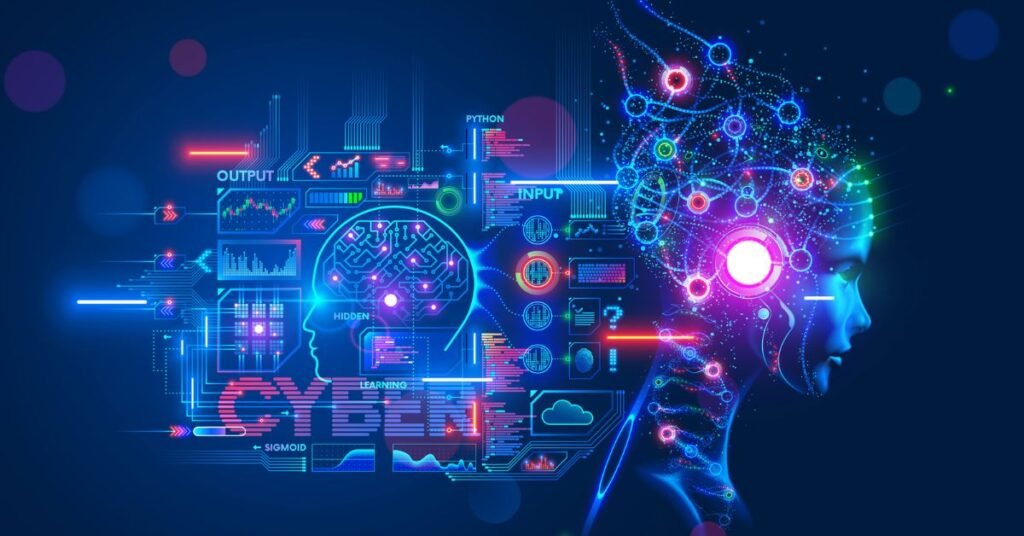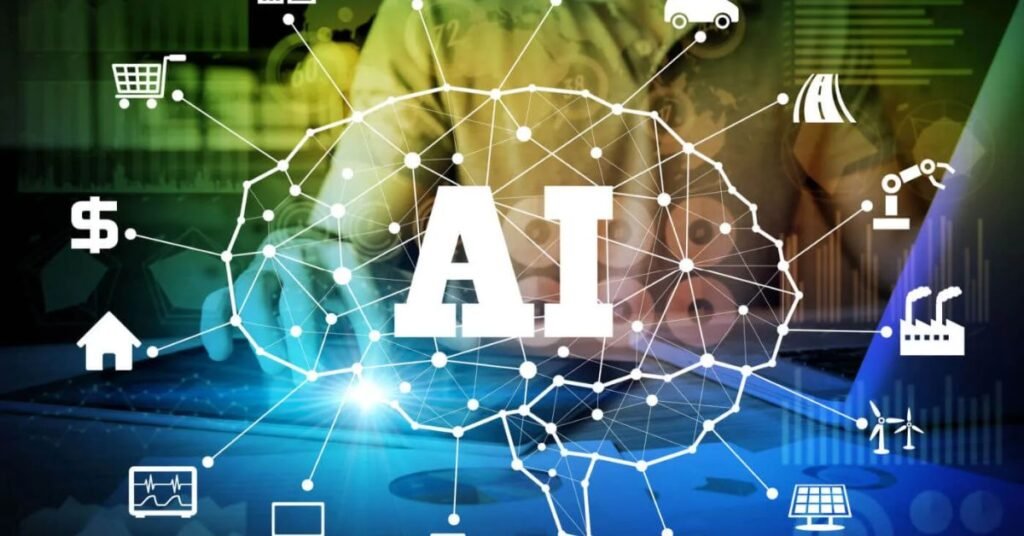Artificial Intelligence Technology has quickly become one of the most transformative forces shaping our daily lives and industries in 2025.
From healthcare to education, AI tools are powering smarter solutions, reducing human error, and boosting efficiency.
This guide explores how AI is evolving, the industries it is revolutionizing, and the opportunities it presents for students and professionals looking to build future-ready skills.
Think about the last time you asked your phone for directions, streamed a movie recommendation, or spoke with a chatbot for customer support. All of these experiences are powered by Artificial Intelligence Technology, and they’re only scratching the surface.
In 2025, AI is no longer just a futuristic idea. It’s here, and it’s shaping how we work, learn, and even think. The question isn’t whether AI will impact your life but how prepared you are to embrace it.
The Rise of Artificial Intelligence Technology
Artificial Intelligence Technology has come a long way since its early research days. What started as simple algorithms mimicking human decision-making has grown into a complex network of machine learning, deep learning, natural language processing, and computer vision.
In 2025, AI is deeply embedded in society. Businesses rely on it for decision-making, students use it for personalized learning, and governments apply it to improve services.

Unlike earlier years, AI tools today are more accessible and affordable, making them available not just to corporations but also to individuals and small startups.
Key Innovations Driving AI in 2025
1. Natural Language Processing (NLP)
Natural language models have advanced to a point where interacting with machines feels almost human. AI can now understand context, emotion, and intent, making chatbots and virtual assistants more helpful than ever.
This has huge implications for customer service, online education, and accessibility for people with disabilities.
2. Generative AI
From creating realistic images to generating code and writing articles, generative AI is pushing the boundaries of creativity.
In 2025, tools powered by Artificial Intelligence Technology will help designers, marketers, and educators produce high-quality content in less time.
3. AI in Healthcare
AI is saving lives by detecting diseases earlier and supporting doctors with accurate diagnostics. For example, AI-powered imaging systems are identifying cancer signs faster than traditional methods, while predictive analytics is helping hospitals manage resources efficiently.
4. AI in Education
Personalized learning platforms are one of the most impactful uses of Artificial Intelligence Technology. Students now receive custom learning paths, feedback, and tutoring support tailored to their pace and strengths. This is reshaping the classroom experience for millions of learners across the US.
5. AI in Business and Finance
AI-driven analytics allows companies to predict consumer behavior, manage supply chains, and automate routine operations.
Financial institutions are using AI for fraud detection, investment predictions, and customer relationship management, making services safer and more efficient.
Everyday Applications of Artificial Intelligence Technology
Smarter Homes
AI-powered assistants like Alexa, Google Assistant, and Apple’s Siri are making homes smarter. In 2025, they can adjust lighting, suggest energy-saving strategies, and even monitor home security with advanced sensors.
Autonomous Transportation
Self-driving cars are not just prototypes anymore. Ride-sharing companies, logistics firms, and car manufacturers are rolling out vehicles that rely on AI to navigate safely and reduce accidents.
Personalized Shopping
Retailers are using AI to deliver hyper-personalized recommendations. Whether you’re browsing clothes online or shopping for groceries, AI predicts what you need before you know it yourself.
Opportunities and Challenges
Opportunities
- Efficiency Gains – Businesses save costs and time through automation.
- Accessibility – Students, professionals, and people with disabilities benefit from personalized AI-powered support.
- New Career Paths – Fields like AI ethics, machine learning engineering, and AI policy are growing rapidly.
Challenges
- Job Displacement – Routine jobs are being automated, requiring workers to reskill.
- Ethical Concerns – Issues of bias, privacy, and transparency remain top challenges.
- Regulation – Governments are still catching up with AI laws to ensure responsible use.

How Students Can Leverage AI in 2025
Students in the US have a unique opportunity to use Artificial Intelligence Technology for personal and professional growth. Here are a few practical steps:
- Use AI Tools for Learning: Platforms like adaptive tutors, AI writing assistants, and coding helpers can simplify complex subjects.
- Develop AI Skills: Learning programming languages such as Python and exploring machine learning frameworks can set students apart in the job market.
- Engage with AI Ethics: Understanding the societal impact of AI is just as important as knowing the technology. Students who combine technical and ethical perspectives will be highly valuable.
How Professionals Can Stay Ahead
For working professionals, staying updated with Artificial Intelligence Technology is not optional anymore. Here’s how to adapt:
- Upskill with AI Courses: Platforms like Coursera, Udemy, and edX provide industry-relevant certifications.
- Integrate AI into Workflows: Learn how AI can streamline your day-to-day responsibilities, from project management to client interactions.
- Build Human-AI Collaboration Skills: While AI handles data and automation, professionals must focus on creativity, strategy, and emotional intelligence.
Future Outlook: What’s Next for Artificial Intelligence Technology?
By 2030, AI is expected to integrate even more seamlessly into society. We may see fully autonomous transport systems, AI-driven personalized healthcare at scale, and virtual classrooms where every student receives tailored instruction. The biggest factor will not just be technological capability but responsible deployment.
AI companies and governments will need to ensure fairness, transparency, and inclusivity. At the same time, individuals who embrace lifelong learning and adaptability will benefit the most.
Conclusion
Artificial Intelligence Technology in 2025 is not a distant dream but a present reality that touches nearly every part of life.
From helping doctors diagnose diseases to supporting students in classrooms and powering businesses, AI is shaping the future of work and education.
For students, this means embracing AI-powered tools to accelerate learning while developing the technical skills to stay relevant.
For professionals, it means integrating AI into daily workflows and focusing on skills that machines cannot replicate, like creativity, leadership, and problem-solving.
The future belongs to those who see Artificial Intelligence Technology as an opportunity, not a threat. If you’re ready to learn, adapt, and innovate, AI will not just change the world around you but also open doors to personal and professional growth.
Also Read: Artificial Intelligence Services 2025: Transforming Business Solutions
Może i słuszna w pełni świadoma decyzja i postawa, że llm'owa bańka to nie jest coś co warto robić https://t.co/WPF5SHh31y
— Engramik (@Engramik) August 25, 2025

Abdul Basit is a US-based tech writer who covers Apple innovations, Tesla’s EV growth, AI breakthroughs, smartphone trends, and app reviews for global readers.
